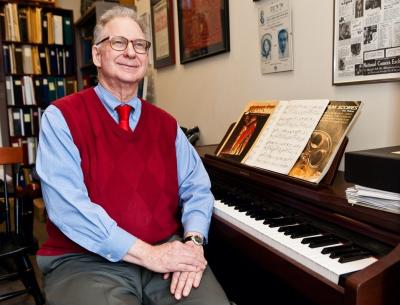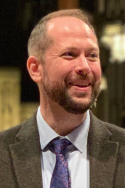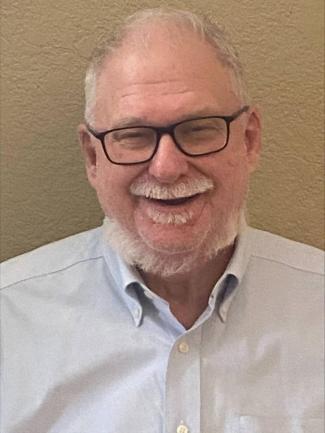
Film Music Symposium in Honor of Martin Miller Marks
Killian Hall is located at 160 Memorial Drive, Cambridge, MA 02139. There is metered street parking with no time limit along Memorial Drive, or parking is available at lots in the area.
Schedule
10:00am Welcome (Emily Richmond Pollock, MIT)
10:15am James Buhler (University of Texas at Austin): On the Origin of Film Music
10:45am Neil Lerner (Davidson College): The Specter of Early Cinema in Pinball
11:15am Hannah Lewis (University of Texas at Austin): From Radical to Cliché: Satie's Gymnopédies on Film
12:00pm Lunch
1:00pm Daniel Goldmark (Case Western Reserve University): UPA and the Modern(ist) Cartoon Score
1:30pm Frank Lehman (Tufts University): Blown Kisses: How Film Composers Ruin Romantic Tension
2:00pm Break
2:30pm Martin M. Marks (MIT): Keynote Lecture and Performance
Le voyage dans la lune (Georges Méliès, 1902)
Sherlock Jr. (Buster Keaton, 1924)
4:00pm Toasts and Reception (Lower Atrium, Building E15)
About the Presenters
 James Buhler
James Buhler is the author of
Theories of the Soundtrack, co-author of
Hearing the Movies, and co-editor of
Music and Cinema,
Voicing the Cinema, and
Music in Action Film. He teaches courses in music and film sound at the University of Texas at Austin.
 Daniel Goldmark
Daniel Goldmark is Professor of Music and an Associate Dean in the College of Arts and Sciences at Case Western Reserve University. He is the author and/or editor of books on animation, film, and music, and is series editor of the Oxford Music/Media Series. Daniel saw Marty give a talk in 1994 and has never been quite the same.
 Frank Lehman
Frank Lehman is an Associate Professor of Music at Tufts University in Medford, Massachusetts. He is the author of
Hollywood Harmony: Musical Wonder and the Sound of Cinema with Oxford University, and the editor of
Film Music Analysis: Studying the Score. Frank is active in the public musicology community and has seen his work featured in venues including The Boston Globe, The Washington Post, and The New York Times. He is currently finishing his next book,
The Skywalker Symphonies: Musical Storytelling in Star Wars, contracted with OUP.
 Neil Lerner
Neil Lerner’s work on film music began with his dissertation, which was a study of U.S. government documentary films with scores by Virgil Thomson and Aaron Copland. He has since published and presented on a wide variety of genres and media including music in television and video games. Lerner edits the Routledge Music and Screen Media Series and has edited or co-edited four books, including
Music in the Horror Film: Listening to Fear and Music in Video Games: Studying Play.
 Hannah Lewis
Hannah Lewis is Associate Professor of Musicology at the University of Texas at Austin. She is the author of
French Musical Culture and the Coming of Sound Cinema (Oxford University Press, 2019), and co-editor (with Jim Buhler) of
Voicing the Cinema: Film Music and the Integrated Soundtrack (University of Illinois Press, 2020). Her book on the film musical
La La Land will be published as part of the new Oxford's Guides to Film Musicals series later this year.
About Martin Marks

Martin M. Marks is a musicologist specializing in the study of film music. After receiving his AB and PhD degrees at Harvard University, he authored Music and the Silent Film (OUP, 1997) and various articles on other film music topics.
He served as Music Curator for four award-winning DVD anthologies in the series Treasures from American Film Archives (National Film Preservation Foundation, 2000-2011). In 2017, he was cited for a special commendation by the Boston Society of Film Critics, “for enhancing Boston audiences’ enjoyment and understanding of silent movies with stellar musical accompaniment.” Since 1979, he has regularly performed live piano accompaniments for silent films, most frequently at/for the Harvard Film Archive.
Martin has relished teaching subjects for MIT's Music and Theater Arts Section. He headed the introductory survey of Western classical music (21M.011), created a new class on film music (21M.284), and revised "Musicals" into "Musicals of Stage and Screen" (21M.283). In years past he also taught for the Film and Media Studies Program.
For being "gifted" with so many years of joyous employment, his gratitude to the Music and Theater Arts Section—indeed, to the entirety of MIT's brilliant and gracious students, staff, and faculty—is beyond measure.








